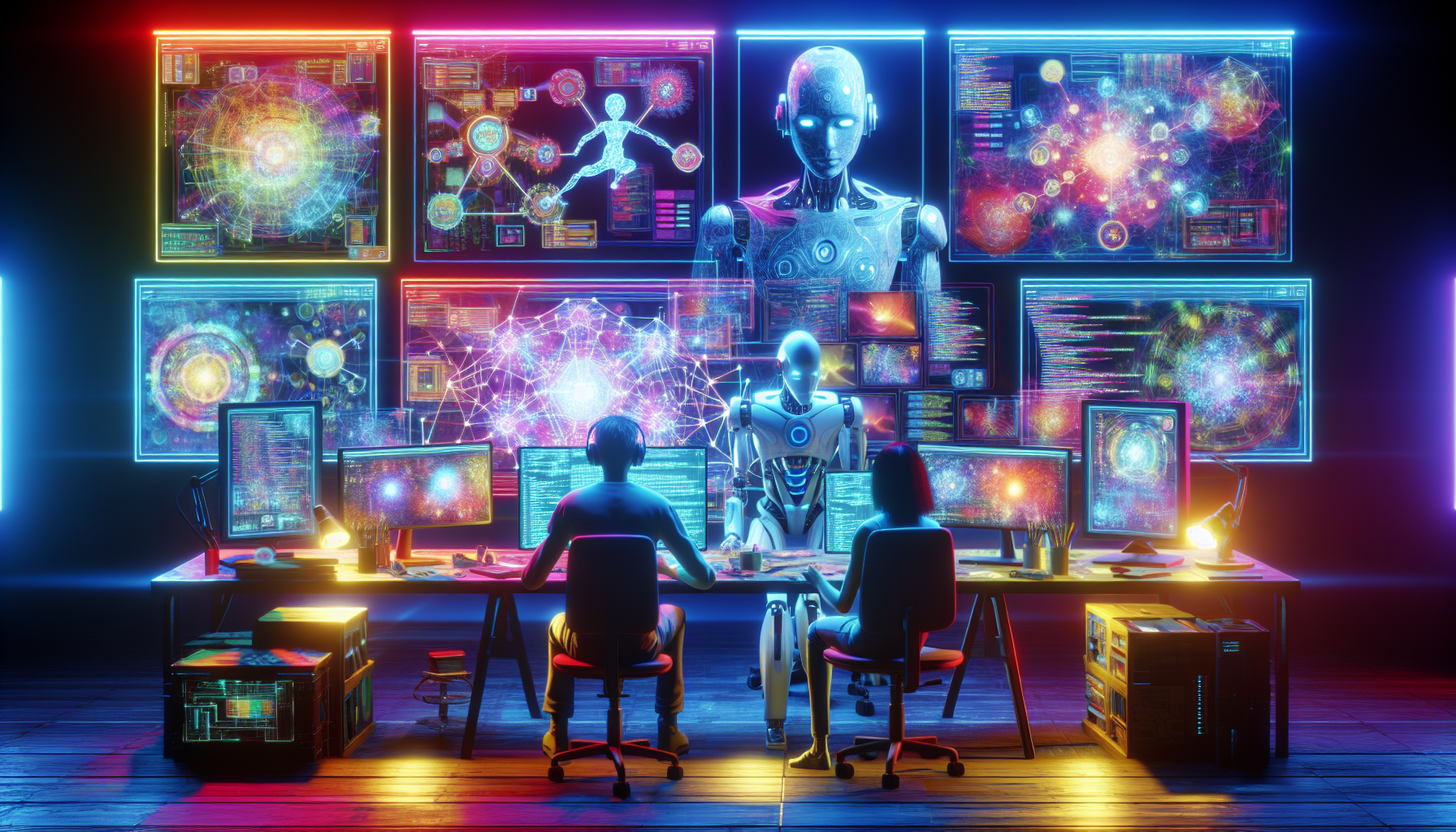
Welcome to the Future: AI Takes on Video Game Screenwriting
Once upon a time, in a land far, far away, video game scripts were penned by human hands alone. Fast forward to now, and what do we have? A brand spanking new collaborator: artificial intelligence. Yes, that’s right! The same tech that suggests you finish your sentences now wants to craft intricate narratives for your favorite gaming adventures. But before we hand over the quills—or should I say keyboards?—let’s dive into the pixelated world of opportunities and challenges that AI brings to video game screenwriting.
Unlocking Creative Doors: Opportunities Ahoy!
New Kids on the Block: Non-Linear Storytelling
First off, AI’s ability to analyze vast datasets can lead to richer, more nuanced storytelling. Imagine a fantasy RPG that actually remembers your penchant for hoarding dragon eggs and subtly changes its narrative to reflect that. Or a thriller where the AI adapits its storyline based on your detective’s deduction skills. This isn’t just multi-branch storytelling; it’s about crafting a world that reacts in real time to you, the hero of your own virtual saga.
Speedy Gonzales: Faster Script Development
With AI, the scriptwriting process could go from slow burn to hyperspeed. No more writer’s block, no more crumpled balls of paper (sorry, trees). AI can generate multiple draft ideas at lightning speed, allowing human writers to do what they do best—refine and add that necessary human touch. Instead of starting from scratch, writers can collaborate with AI to explore diverse narrative pathways in less time than it takes your console to boot up!
The Babel Fish Effect: Language and Localization
The dream of every gamer is a world where language barriers do not exist. Enter AI, with its capacity for instant language translation and localization. Games could be released globally at the same time, with narratives tailored to cultural nuances without losing their original flavor. Think of it as having a babel fish in your ear, but way cooler and without all the gooey mess.
The Flip Side: Glitches and Hitches
The Autopilot Plight: Loss of Human Touch
Can AI match the emotional depth of a seasoned screenwriter? Perhaps not yet. There’s a nuanced art to human storytelling that AI might struggle to replicate, especially when it comes to conveying humor, sorrow, or suspense. Plus, let’s be honest, would you really trust a robot to draft the next tear-jerking moment or edge-of-your-seat thriller? There’s a lot at stake when you swap human experience for automated efficiency.
Cookie Cutter Conundrums: Risk of Generic Narratives
While AI can churn out stories faster than a game character on a speed potion, there’s a real danger in those tales becoming as generic as character skins in a bargain bin. With algorithms often designed to follow patterns, could our future game scripts be doomed to a fate of predictability? We love formulas because they work, but too much of a good thing might just ruin the broth (or in this case, the plot).
The Job Juggling Act: Displacement of Screenwriters
The thought of AI taking over human jobs is about as appealing as a jump scare in a horror game. As AI technology becomes more sophisticated, the screenwriting community faces the real threat of displacement. This sparks a crucial conversation about integrating AI in ways that enhance creativity rather than replacing the creative minds themselves.
Powering Up: The Future of AI in Game Writing
So, what does the future hold for AI in video game screenwriting? It’s likely a co-op game. With AI as the sidekick, human writers aren’t sidelined but empowered to push narrative boundaries and explore new realms of storytelling. Together, the human-AI duo can create enchanting worlds with depth, emotion, and unparalleled engagement, assuming we can keep those pesky AI-generated clichés in check!
Whether we’re ready or not, AI is zooming into the world of video game screenwriting. Strap in, and let’s enjoy this wild ride—pixel by pixel.






